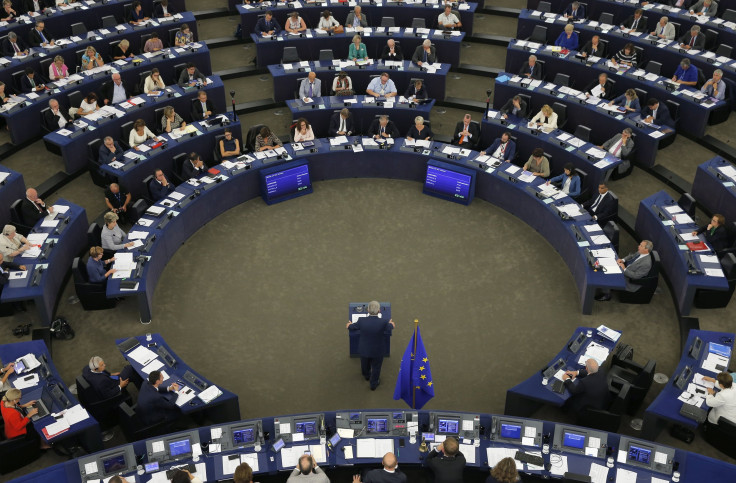Jean-Claude Juncker Laments Lack Of European Solidarity, Charts Fresh Path For Post-Brexit EU

In his eagerly-awaited speech to the European Parliament, European Commission President Jean-Claude Juncker on Wednesday proposed to double his flagship EU investment plan to 630 billion euros ($707.5 billion) by 2022. The original plan, launched last year, aimed to raise 315 billion euros over a period of three years to boost the bloc’s economic health.
“The 315 billion euros Investment Plan for Europe, which we agreed together here in this House just twelve months ago, has already raised 116 billion euros in investments — from Latvia to Luxembourg — in its first year of operation,” Juncker said. “With your support, we will make sure that our European Investment Fund will provide a total of at least 500 billion euros — half a trillion — of investments by 2020. And we will work beyond that to reach 630 billion euros by 2022.”
Additionally, in a bid to stem the influx of migrants and refugees to Europe — an issue that has laid bare stark policy differences among EU member states — Juncker also announced the creation of a fund for Africa that would aim to raise 44 billion euros in investments in the region.
“The logic is the same that worked well for the internal Investment Plan: we will be using public funding as a guarantee to attract public and private investment to create real jobs,” Juncker said. “This will complement our development aid and help address one of the root causes of migration. With economic growth in developing countries at its lowest level since 2003, this is crucial. The new Plan will offer lifelines for those who would otherwise be pushed to take dangerous journeys in search of a better life.”
This was Juncker’s first State of the Union speech since the U.K.’s unexpected vote to leave the 28-nation bloc. Addressing the looming Brexit — a process that will begin once the British government invokes article 50 of the Lisbon Treaty — Juncker said that although there was widespread “regret” about the U.K.’s decision to leave the bloc, the future of the EU itself is not at risk.
“I have witnessed several decades of EU integration. There were many strong moments. Of course, there were many difficult times too, and times of crisis. But never before have I seen such little common ground between our Member States. So few areas where they agree to work together,” Juncker said. “Never before have I seen representatives of the EU institutions setting very different priorities, sometimes in direct opposition to national governments and national Parliaments. It is as if there is almost no intersection between the EU and its national capitals anymore.”
The State of the Union address comes two days before a scheduled summit of 27 EU leaders in Bratislava, where Brexit, and its economic and political impact on the bloc, is likely to dominate the agenda.
© Copyright IBTimes 2024. All rights reserved.






















